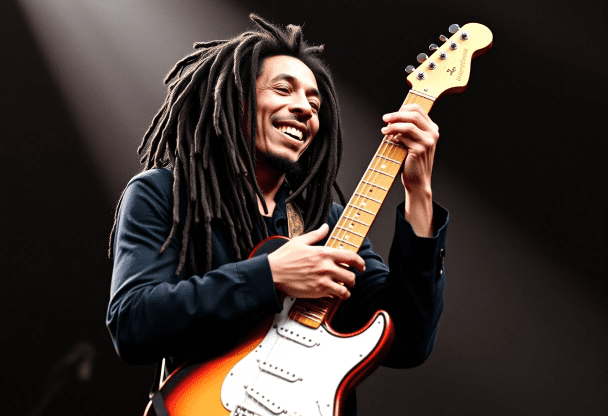Bob Marley’s Global Impact and His Cultural Roots

If Earth had a soundtrack, there’s a good chance Bob Marley’s voice would be playing in the background — soothing, revolutionary, and ready to bun fire pon Babylon at any given moment. From Japan to Johannesburg, Paris to Portmore, the man’s music has touched souls, sparked movements, and probably helped a few people find spiritual awakening during a really intense steam chalice session.
But before Bob became the dreadlocked global icon, the poster child for peace, and the man every souvenir shop in Negril keeps on speed dial, he was just a yute from Trenchtown with a guitar, a vision, and a burning desire to make the world pay attention.
So how did this barefoot rasta bwoy with a big dream and even bigger hair change the world? And more importantly, how did his cultural roots, steeped in Jamaican livity, struggle, and some serious nyabinghi drumbeats shape the legend we know today?
Let’s dig in. And as Bob himself would say, “Don’t worry, ’bout a ting.”
From Trenchtown with Love
Trench Town, where Bob grew up, wasn’t exactly the land of golden opportunities. It was more like “ducks in di drum pan,” rough and tight. But it was also buzzing with creativity, community, and music around every corner shop.
It’s where he learned from mentors like Joe Higgs and rubbed shoulders with future legends. Out of that humble, likkle but tallawah community came the sound that would change the world.
Bob took the spirit of Trench Town, the pain, the perseverance, the laughter over sugar and water, the resistance in every bassline and turned it into poetry with a backbeat.
The Message in the Music
Bob didn’t just sing songs. He preached. Gently. With rhythm. And probably while holding a spliff.
He sang about equal rights and justice, about emancipation from mental slavery, about standing up for your rights even if your knees knocking. And the world listened.
He made reggae the heartbeat of the underdog. The soundtrack of liberation. Whether you were in Zimbabwe during independence or chilling in a dorm room in Sweden, when Bob sang, “Get up, stand up,” you felt like kicking off your shoes and marching toward freedom.
A Global Star with Roots in Deep Yard Soil
Sure, Bob sold out stadiums, rubbed shoulders with royals and rock stars, and made it into every college kid’s poster collection but he never lost touch with his roots.
He still talked in patois in interviews, still referenced Jah Jah, still repped for the I-n-I. He didn’t water down the culture for the cameras. If anything, he made the cameras come to Jamaica to understand it.
And through him, the world learned about Ital food, dreadlocks, repatriation, Zion, and Rastafari without needing a travel brochure.
Fashion, Football, and Full Vibes
Let’s not pretend Bob wasn’t also effortlessly cool. He made denim pants and mesh marina look like runway fashion. He could reason with Haile Selassie in the morning, then kick ball barefoot on a dirt field by afternoon and still have enough energy to perform in front of 20,000 fans by night.
He was culture personified; dreadlocks, wisdom, rhythm, and nuff vibes.
His Legacy: Still Blazing Like a Good Spliff
Today, Bob’s legacy is everywhere. Murals in Nairobi. Streetwear in London. Baby names in Kingston. Even politicians who once ignored him now quote him in parliament (usually misquoted, but still).
His children have carried the torch, his lyrics still make protesters raise signs, and every February in Jamaica turns into a Bob Marley tribute playlist. We celebrate his birthday with more reverence than some public holidays (we see yuh, Emancipation Day).
And the man did it all without selling out. He remained deeply Jamaican. Deeply spiritual. Deeply rooted in the struggles of his people. And he did it with a smile, a song, and a likkle ganja fi di meditation.
Bob Marley didn’t just give us music; he gave us an identity. He made the world sit up and say, “Wait, where’s this Jamaica place and why is its music making me cry, dance, and question capitalism all at once?”
He was proof that one man, with enough irie vibes, could shift global consciousness. And he did it all while representing the culture, the people, and the likkle rock in the Caribbean that refuses to be small.
So next time you hear “One Love” playing in a supermarket, pause for a second. Remember the roots. Remember the message. And whisper, “Big up yuhself, Robert Nesta. Wi proud.”



